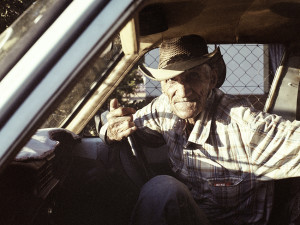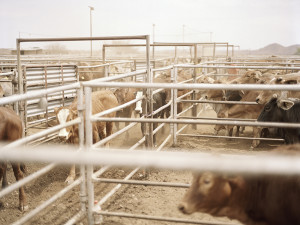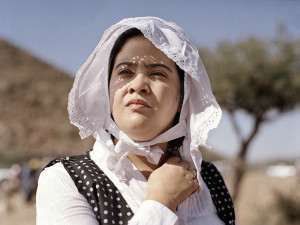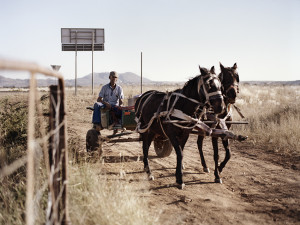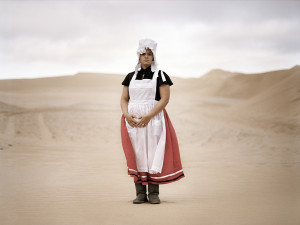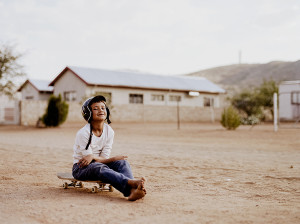One hundred years after the Rehoboth Basters rose up against their German colonizers, the photo series “Basterland“ takes up the task of providing a multifaceted insight into the contemporary life of the ethnic group living in Namibia today. A heterogenous spectrum of images arises in condensed pictures, revealing the tension-laden contradictions inherent to a typical phenomenon of our day and age—the confrontation between the processes of global standardization, and traditional regional structures that have been upheld over generations and defended against such external, antagonistic forces.
This is a portrait of a society that seems to find itself in an “in-between“ amid tradition and change. It emerges out of the deliberately subjective impressions of the photographer: She, too, is permeated by this “in-between“, on the one hand because of her repeated visits to the region to become part of the community; on the other hand because of her European heritage, through which she always represents something other. This tension saturates the images throughout the series; some images were partially staged, others were created spontaneously. Thus, the very personal questions and emotions that are connected to the photographs are simultaneously expressions of contemporary, fundamental processes: the much-discussed replacement of imperialism by the economic colonization of Africa, but also the reinterpretation of seemingly stable concepts of “origin” or “home“—terms that have their own particular relevance in connection to the Baster’s unique history.
The virtually constitutive meaning of this history, which has been fought for time and time again, is the central theme of this work: The past lights up in the present, but precisely this past was meant to constantly be protected from the present which in turn, in form of the current state of Namibia, appears to show little interest in the cultural legacy of the Baster. Last but not least the merit of this photo series lies in reminding us of a forgotten episode of German colonial history.
